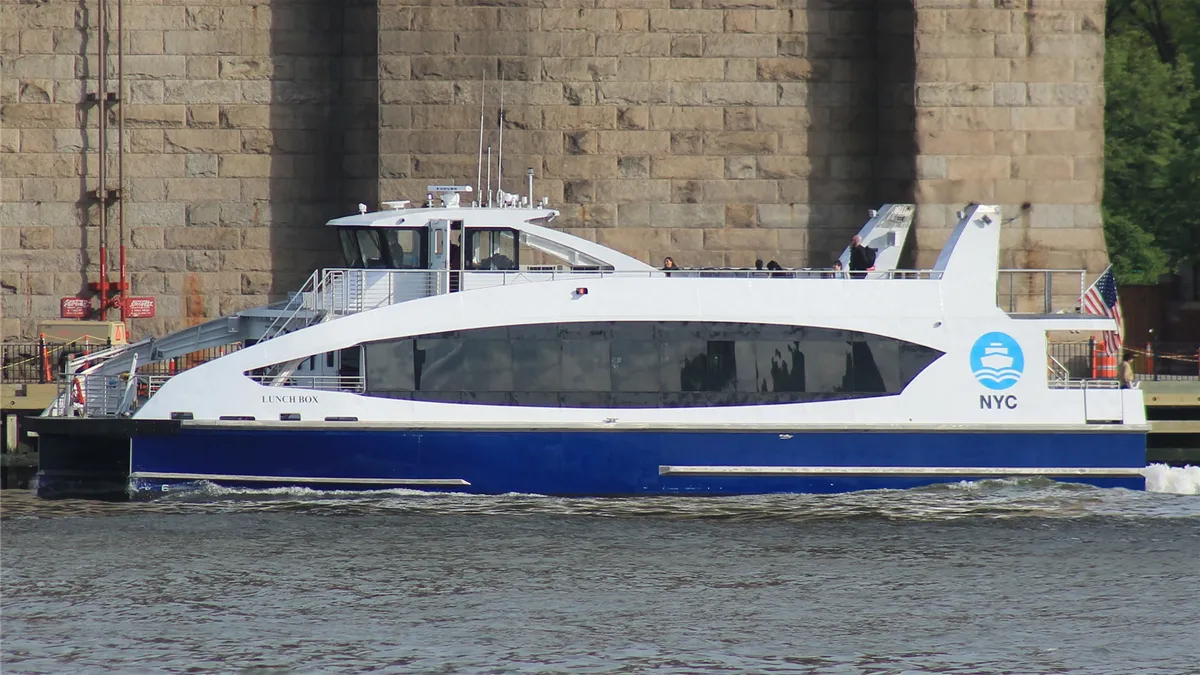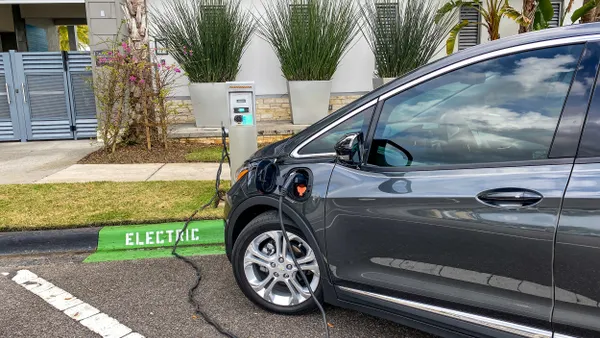Dive Brief:
- The New York City Council recently passed a bill to study the use of alternative fuels instead of diesel to power the city's ferries.
- The two-year study will examine fuels such as biodiesel, fuel-cell electric and hybrid electric. It will also cover topics such as fuel availability, storage and compatibility with ferries, as well as possible barriers and regulations related to using such fuels.
- If the study concludes that renewable fuels are a feasible option, then New York will require that those fuels be used to operate city ferries.
Dive Insight:
New York differs from most other U.S. cities in its use of ferries, which are a major transportation mode between the island of Manhattan and the surrounding boroughs. The amount of ferry service had dwindled in the past few decades until last year's launch of NYC Ferry, which is operated by Hornblower Cruises and subsidized by the city. The response to the new carrier has been overwhelmingly positive and ridership reportedly has exceeded expectations to such an extent that service will expand to more locations this year.
Many commuters have switched to taking NYC Ferry instead of the subway. Providing another reasonable transit option was part of Mayor Bill de Blasio's intent with promoting and subsidizing the service. Because of the estimated $6.60 per ride subsidy, one trip costs $2.75, which is the same as a subway or bus trip. Other ferries typically are at least twice as expensive, making them a less affordable option for the average commuter. An exception is the city-operated Staten Island Ferry, which is free to riders but costs the city an estimated $5.87 per trip.
The renewable fuel study legislation covers ferries that the city owns like the Staten Island Ferry and also those like NYC that are operated on behalf of the city. The Staten Island Ferry already embarked on an effort to become more environmentally friendly when it began using liquefied natural gas in one of its vessels in 2013. The types of renewable fuel options under examination would reduce the amount of emissions compared with the most commonly used ferry fuel: petroleum-based diesel.
Council Member Costa Constantinides, who introduced the legislation and is chair of the council's environmental protection committee, said that ferries are one of the city's most sustainable transit options, but that "[a]s use of our citywide ferry system has grown exponentially, we must innovate the type of energy we use to fuel the boats."












